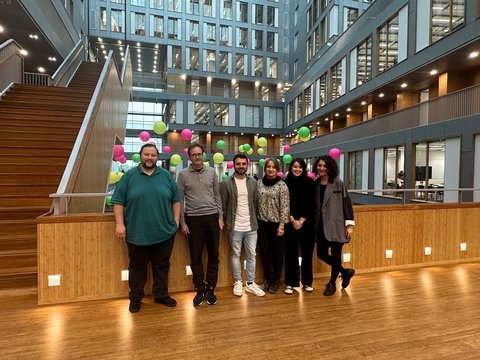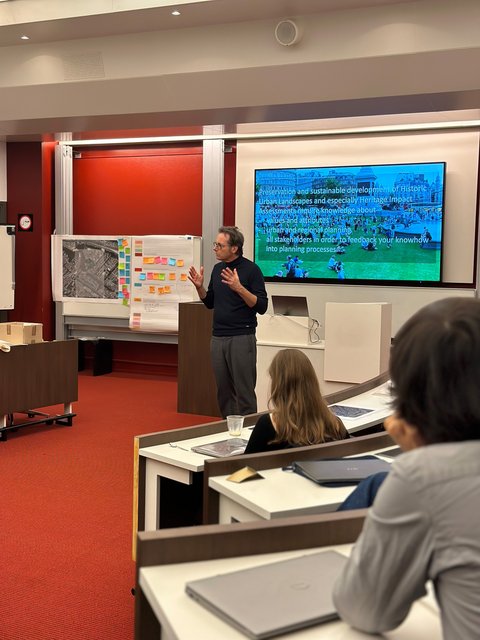HERILAND WORKSHOP IN AMSTERDAM: FOCUS ON CULTURAL HERITAGE AND SUSTAINABILITY
HERILAND Workshop in Amsterdam: Focus on cultural heritage and sustainability
Amsterdam / Niederlande, 06.11.2023 - Four students from RheinMain University of Applied Sciences took part in a workshop organised by the HERILAND project. It was organised by the Vrije Universiteit Amsterdam as host together with RheinMain University of Applied Sciences, the University of Antwerp and the University of Gothenburg. HERILAND is a pan-European research and training network for a wide range of stakeholders in the management of cultural heritage, focussing on communicating approaches for early identification, recording and conservation through sustainable development. The workshop took place on site in Amsterdam and was part of an overarching Blended Intensive Learning Programme (BIP) funded by the European Union under the Horizon 2020 research and innovation programme.
The students were accompanied by Prof Michael Kloos and Dr Merve Demiröz-Torun from the UNESCO Chair for Historic Urban Landscapes and Heritage Impact Assessments, who were also part of the programme and organised the event as part of an elective subject that is to become part of the curriculum of the Master's in Architectural Heritage in the future.
The workshop aimed to address contemporary challenges of the 21st century, such as migration, digital transformation, changing environmental conditions and climate change. In this fast-moving context, cultural heritage management requires fresh perspectives, innovative tools and specialised training to effectively integrate interdisciplinary, research-based approaches. The international exchange was the perfect stage for this.
HERILAND's research structure strategically positions cultural heritage in five transformation processes that are recognised as key challenges in 21st century heritage management: The spatial turn, democratisation, digital transformations, changes in demographics and contested identities, and changing environments. Within this framework, participants will be trained in a series of research seminars, living labs and site visits. The aim of HERILAND is to establish a new transnational, interdisciplinary and cross-sectoral standard of research and education.
The overall aim of HERILAND is to empower a new generation of academics, policy makers, practitioners, professionals and entrepreneurs. This new generation will develop and lead the ever-increasing demands of planning and design strategies to regenerate Europe's cultural heritage and landscape, promote inclusivity and create socially, economically and environmentally sustainable future landscapes.

